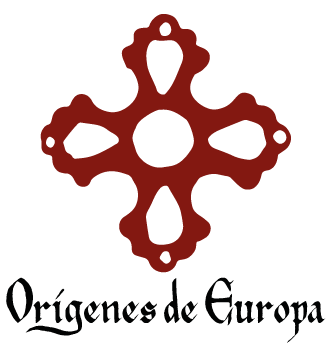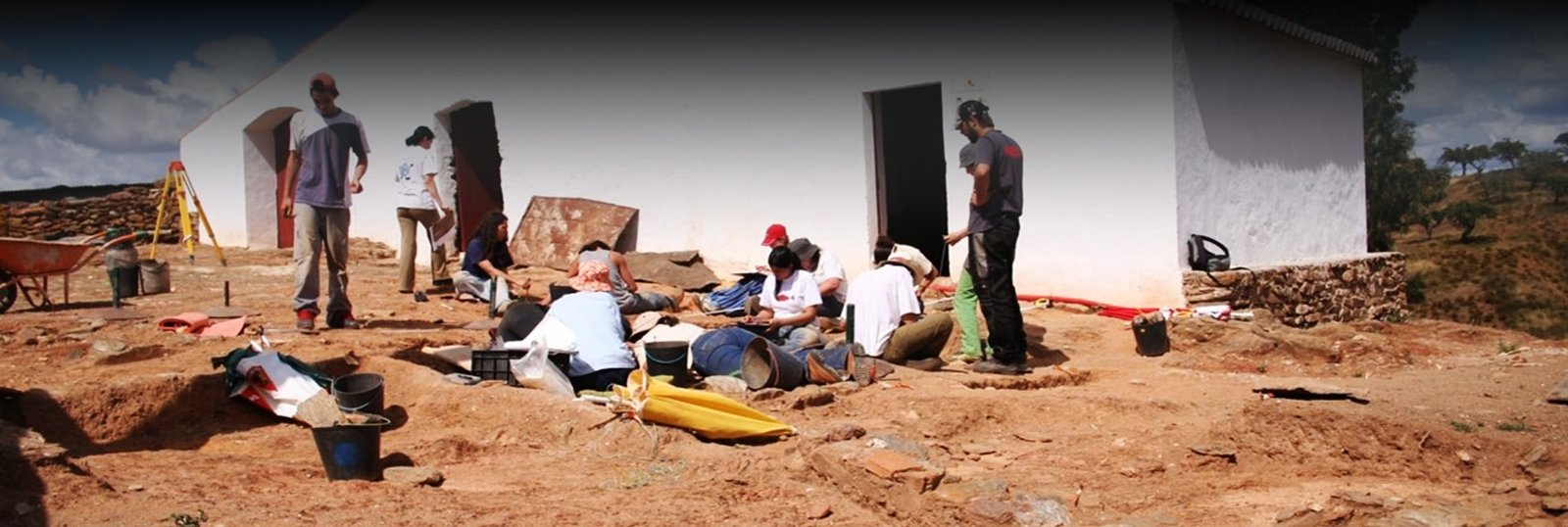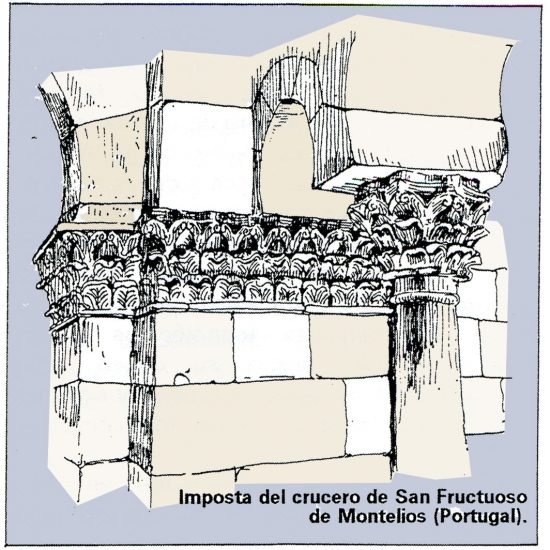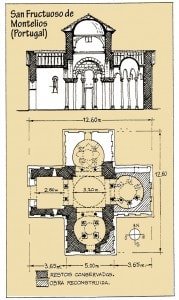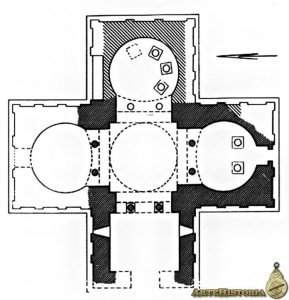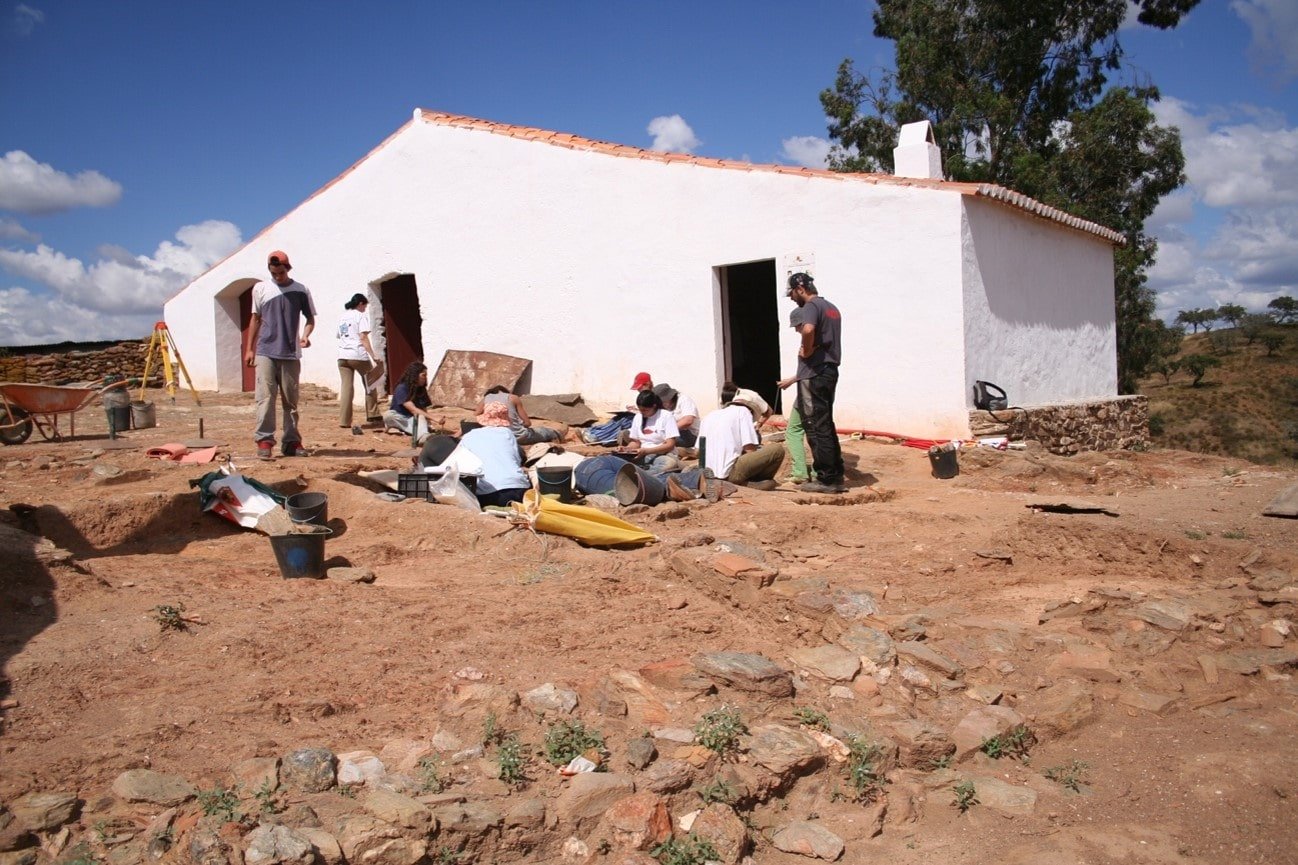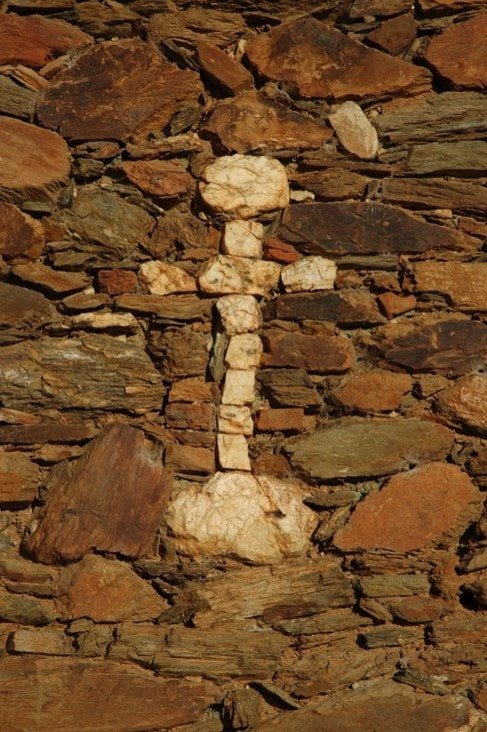Monte Mosteiro
per person
The main goal of this project, aimed at recovering a small religious building in Mosteiro, 20 km north of Mértola, was to establish a relationship between its history and the people who live here.
The monastery, which was built in an area where there used to be a Roman Villa, is mentioned in documents since the 15th century, but its origin is a lot earlier. In the 1980s it was completely ruined; it was acquired by City Council and recovered by students from the Escola Profissional Bento de Jesus Caraça, in Mértola.
In addition to architectural elements, it displays ethnographic objects donated by locals, fostering the creation of identity bonds and the development of a need to preserve collective memory.
FORMAL ANALYSIS
Next to the old road that linked Myrtilis (Mértola) to Pax Julia (Beja), near the difficult crossing point over the river Terges and Cobres, a small group of houses (monte), known as Mosteiro, is situated. At the furthest point of this group of houses and situated slightly apart, is a small building, which, due to its architectural features, has come to be identified as a former place of Christian worship. This same place occupied by a villa (agricultural house) or mansio (place for changing the teams of horses and giving support to passers-by) was later adapted in the Roman period to a household monastery.
Various archaeological elements from the late Roman period to the Palaeo-Christian one were localized, or gathered in this place, having been re-used as construction material of which shafts, bases of columns and other architectural and ceramic fragments are to be highlighted.
This monument, constructed in poor stonework, is divided in two: the chancel and the main rectangular body, separated by a triumphal arch, possibly made later. The apse –chancel, covered by a small calotte, liturgically faces the East.
Two other divisions were annexed to the original body at an indefinite date, converting the former Christian temple into a residential area with its outbuildings.
VIRGILIO LOPES
- Mosteiro (Monte Mosteiro, Mértola) © PHOT. VIRGILIO LOPES
- Mosteiro (Monte Mosteiro, Mértola) © PLAN, CAMPO ARQUEOLÓGICO DE MÉRTOLA
- Excavación en el exterior de mosteiro © PHOT. VIRGILIO LOPES
- CRUZ PÉTREA EN EL MURO DE LA IGLESIA © PHOT. VIRGILIO LOPES
Tour Location
Monte Mosteiro
| Outros monumentos e locais a visitar | Museu de Mértola |
| Herança natural | Parque Natural do Vale do Guadiana |
| Recreações Históricas | |
| Festival de Interesse Turísticot | |
| Feiras | |
| Guias Especializados | Mértola |
| Guias Especializados | No |
| Visitas Guiadas | Yes |
| Acomodações | Mértola |
| Restaurantes | Mértola |
| Arte | |
| Bibliografia | |
| Vídeos | |
| Local na rede Internet | museudemertola.pt |
| Monumento ou local a visitar | Monte Mosteiro |
| Estilo | Roman, paleocristhian, medieval |
| Tipo | Monastic architecture |
| Época | Siglos II-VII |
| Estado de Conservação | Good |
| Grau de proteção legal | Mértola Museum |
| Endereço para correspondência | turismo@cm-mertola.pt |
| Coordenadas | GPS: 37.789973, -7.723969 |
| Propriedade, dependência | Câmara Municipal de Mértola |
| Possibilidade de visitas do público em geral ou apenas de especialistas | |
| Necessidades de conservação | Yes |
| Horários e condições de visita | De martes a domingo: de 9:15 a 12:30 y de 14:00 a 17:15 horas Cerrado: lunes, 1 de enero, 1 de mayo y 25 de diciembre Praça Luís de Camões 7750-329 Mértola Teléf.: 286 610 100 museus@cm-mertola.pt |
| Valor do ingresso | |
| Trabalho de pesquisa em andamento | |
| Acessibilidade | |
| Sinalização se está inscrito na rota | |
| Bibliografia | BOIÇA, J., (1998), Imaginária de Mértola, Campo Arqueológico de Mértola, Mértola. BOIÇA, J. E BARROS, M.F.R, (1995), As Terras as Serras os Rios, As Memórias Paroquiais de 1758 no Concelho de Mértola, Estudo e Fontes para a História Local, Campo Arqueológico de Mértola, Mértola. FREI LEÃO DE S. TOMÁS, (1974), Benedictina Lusitana, Coimbra 1644 (Reed. Fac-similada e anotada por J. Mattoso), Lisboa. Godoy Fernandes, C., (1995), Arqueologia y Liturgia. Iglesias Hispánicas (Siglos IV al VIII), Universitat de Barcelona, Barcelona. MACIEL, J. e MARTINS J.P., (1995) - “Monasterium e Ecclesia de S. Salvador no Monte Mosteiro, (Mértola)”, in IV Reunião de Arqueologia Cristã Hispânica, Lisboa (1992), Barcelona, 499-506. RIPOLLl, G., 1985.- La necrópolis Visigoda de El Carpio de Tajo Toledo. Madrid. UTERO AGUDO, M. A., (2006), Iglesias tardoantiguas y Altomedievales en La Península Ibérica. Anejos de AEspa XL, Archivo Español de Arqueologia, CSIC, Madrid. |
| Vídeos | |
| Sites de informação | museudemertola.pt |
| Localização | Monte Mosteiro Mértola |
